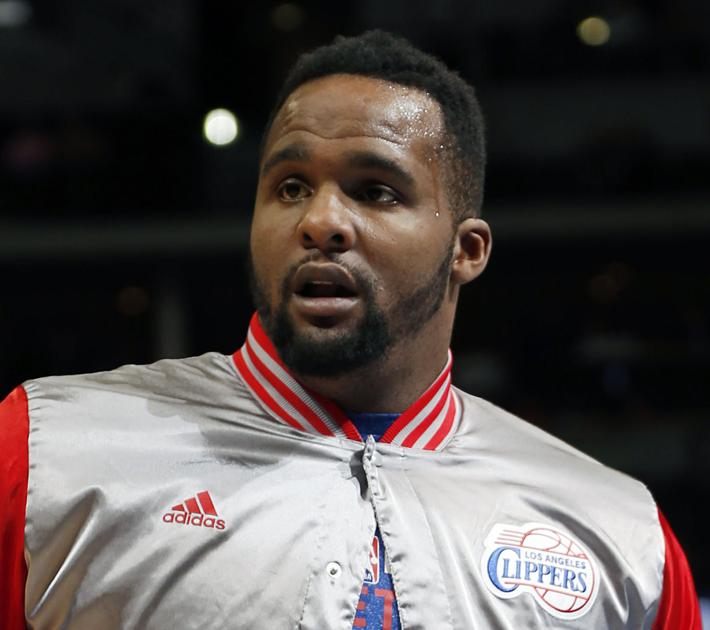
When NBA owners and the players’ union unanimously agreed in 2016 to provide comprehensive health insurance for retired players, the two sides worked in harmony because they wanted to help people such as Phil Chenier.
Chenier spent 10 seasons in the league, a generation before players’ salaries resembled the gross domestic products of small countries, and retired in pain.
“All of the players that I talk to . . . we all are real excited about this plan in the way it has helped us and saved us,” the former Washington Bullets great told me Thursday afternoon from his home in Columbia, Md. Four years with this health-care package, Chenier’s voice still rings with gratitude.
The league and the union did not expand medical benefits for people such as Terrence Williams.
He was a 2009 lottery pick who spent six years in the NBA and reportedly made about $7 million in a career cut short after he brandished a firearm at the mother of his child in 2013. In retirement, Williams allegedly tried to dupe the league’s health-care program by submitting fake medical and dental claims for reimbursement. According to the U.S. attorney’s office in Manhattan, Williams was the mastermind among 18 former NBA players who submitted $3.9 million in false claims.
Some might question the motives of federal authorities, who seemed all too eager to publicize a scheme that involved high-profile names but just a small bundle of cash. During a news conference Wednesday, one prosecutor dropped a cringeworthy pun about “the defendants’ playbook.” And on an easel, officials propped up an oversized visual of a basketball rack that featured a breakdown of the case, just in case anybody forgot that — wait for it — ex-NBA players were arrested and charged.
However, if the charges are true, it’s hard to fathom how these players could lie and cheat and steal from the coffers of their own league. And even harder to comprehend just how little they cared about their elders, the men who helped shape the NBA into a global, billion-dollar industry, and whom this medical program was created to honor.
Chenier underwent two back surgeries in the twilight of his career. When he left the game, his knees hurt. So did his feet. Even today, he lumbers when he walks because he can’t use his toes. He’s almost 71 years old and requires frequent physical therapy. He also has a skin condition and has to see a dermatologist. And after battling prostate cancer, Chenier must check in with his urologist four times a year.
Still, Chenier has a good life. He spends much of his time watching any one of his six grandkids or playing pinochle and dominoes.
Williams, who is accused of sending false provider invoices to the players in exchange for $230,000 in kickbacks, has a sweet retirement life, too. To celebrate his 34th birthday, Williams made it rain at a strip club — which he gleefully shared on Instagram.
If authorities indicted Williams as the lone wolf in this scheme, maybe we could believe that only one selfish individual had attempted to defraud the plan the very year it started. But Williams allegedly recruited other young retirees who were in the league as salaries swelled.
Glen “Big Baby” Davis, maybe the most notable name because he won a championship with the Boston Celtics, has remained somewhat relevant in his post-basketball days by hosting a podcast and working as a commentator for a celebrity basketball league. And yet he still allegedly tried to claim $132,000 from the benefits plan for dental work he never received.
Milton Palacio, who was recently hired as a Portland Trail Blazers assistant coach, was working in the developmental G League when authorities allege that he tried to claim nearly $75,000 in reimbursements for services he didn’t receive. Greg Smith was playing professionally in Taiwan when he allegedly tried to rip off the plan for $48,000 of dental work he couldn’t possibly have had done in Beverly Hills.
Their greed tainted the spirit of the health care plan, which the league and its players backed with pure intentions. On Thursday, when Chenier read a news story about the charges, he was astonished by the alleged conspiracy.
“Wow,” he said in reaction. “It’s kind of disappointing because this was a plan we were all excited about.”
Since signing up for the premium health coverage, Chenier said he doesn’t remember receiving one significant medical bill in the mail in four years. Now, Chenier wonders if the deeds of a few bad actors in the younger generation will impact the benefits for the old-timers.
The NBA and NBPA did the right thing in 2016. They created a blueprint for other leagues to follow, even for the rest of us. We should look after and take care of the generations that came before us, whether they played a decade of basketball in the 1970s or spent 30 years working in an office, or a factory, or a hospital. Our predecessors deserve more than token appreciation. They deserve comfort.
As union president Chris Paul said when the deal was reached, “At some point, one time or another, everybody out here is going to be a former player. You know what I mean? I think that shows how connected we are as a body of NBA players.”
That was the vision. But the indictment describes 18 men who stayed connected to the fraternity of former players only by leeching off what didn’t belong to them. If proven guilty, the true transgression was their disrespect to people such as Chenier.
